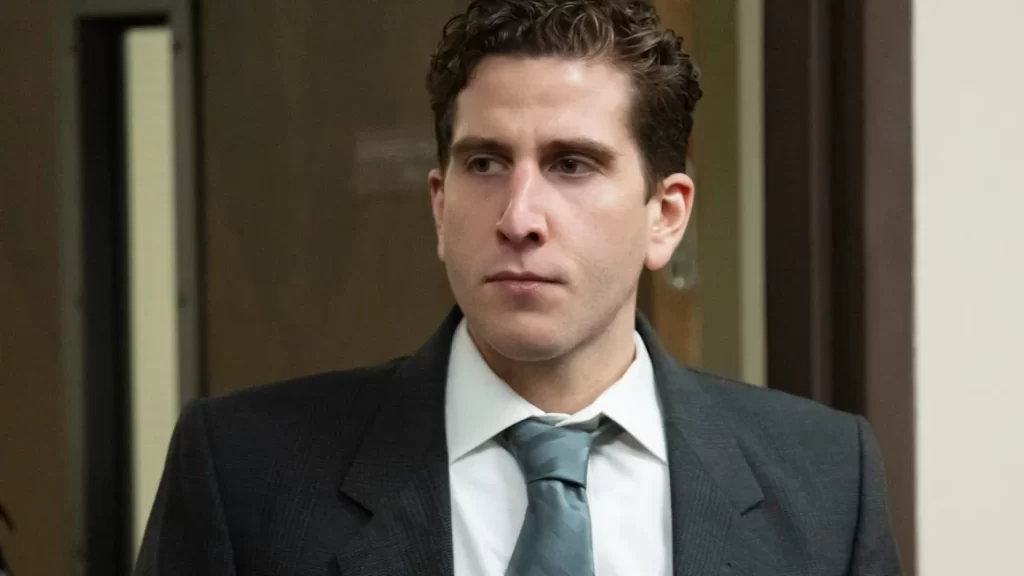A judge overseeing the pretrial hearings for Bryan Kohberger, the former criminology grad student accused of killing four University of Idaho students in November 2022, ordered prosecutors and defense attorneys Thursday to preserve records after an apparent leak made its way into a “Dateline NBC” episode last week.
Judge Steven Hippler also requested more information on a proposed defense argument that there are possible “alternate perpetrators” during one of the last hearings before the trial goes ahead later this summer.
Kohberger, 30, was seen in the courtroom at the hearing Thursday morning on a livestream seated in between his attorneys, wearing a white shirt and a dark, patterned tie.
He faces four counts of first-degree murder in the deaths of Madison Mogen, Kaylee Goncalves, Xana Kernodle and Ethan Chapin, who were fatally stabbed at an off-campus home in Moscow, Idaho, in the overnight hours of November 13, 2022.
Kohberger was arrested in the killings over a month later in his home state of Pennsylvania. A not guilty plea was entered on his behalf in May 2023.
The lurid case has riveted the public and has already been featured in multiple true crime documentaries. Still, prosecutors have not outlined his potential motive, and a sweeping gag order has kept the parties from speaking publicly, making each pretrial hearing an opportunity to quench the public’s thirst to learn more details.
The public’s desire for inside knowledge on the case was addressed in an order filed by Hippler Thursday, which reprimanded all parties involved for potentially leaked information that was featured in a “Dateline NBC” special Friday.
The special featured extensive records from Kohberger’s phone, including internet and Amazon searches, Instagram photos and cell phone tower data, according to the order. “Dateline” also obtained security footage showing a car driving near the off-campus home around the same time investigators think the murders occurred.
In the scathing orders, Hippler said the leak will have lasting repercussions and “it is imperative to attempt to see that the source of such leak is identified and held to account.”
“Such violations not only undermine the rule of law, potentially by persons charged with upholding it, but also significantly impede the ability to seat an impartial jury,” both orders said, adding the leak will add additional costs and time to select a jury. “Importantly such violations potentially frustrate the ability to ensure both sides receive a fair trial,” one of the orders said.
Both the prosecution and the defense are ordered to retain all records relevant to the leaked information, and submit a list within seven days of who on their team came into contact with the relevant evidence. Prosecutors are also required to come up with a written plan on how to identify any potential violations and how to prevent it from happening again.
Jury selection is scheduled to begin in late July, with the trial slated to start August 11. If convicted, Kohberger could face the death penalty.
Judge sets June pretrial hearing date
Recent pretrial hearings have touched on the admissibility of key pieces of evidence, including Kohberger’s autism diagnosis, DNA analysis, his Amazon purchase history and a witness’s description of the suspect’s “bushy eyebrows.”
Kohberger’s legal team also has previously said it plans to present evidence of alternate perpetrators ahead of trial. Hippler on Thursday set a hearing on the issue for June 18. Hippler said he would seal the defense proffer about other suspects in the case and asked the defense attorneys to provide him “with whatever actual evidence you have that supports those allegations, rather than just allegations,” and to show that the evidence is admissible by May 23.
Related article
How Bryan Kohberger could get the death penalty off the table before his trial even starts
During Thursday’s hearing, Hippler broke down the trial process in stages, discussing matters including jury selection, hours for the trial and seating within the trial courtroom.
“I’m not a fan of surprises,” Hippler noted.
The judge directed to the defense team that he would like to get back from them a declaration of the last best offer – referring to a possible plea deal from prosecutors – by late June or early July. “In other words, identifying whether the defendant received an offer and whether he has accepted or rejected, etc.,” Hippler said.
Prosecutors aren’t required to entertain a plea deal to bargain away the death penalty but often they do. Whether Kohberger is actually considering a plea deal in the killing of four University of Idaho students on November 13, 2022, is unknown.
For jury selection, the judge outlined his plan to assign a scramble number to each person within the universe of jurors, who will then receive questionnaires. Hippler stressed the “security and confidentiality” of those questionnaires.
Hippler decided there will be eight alternates and told counsel he wants a pool of between 50 to 5



